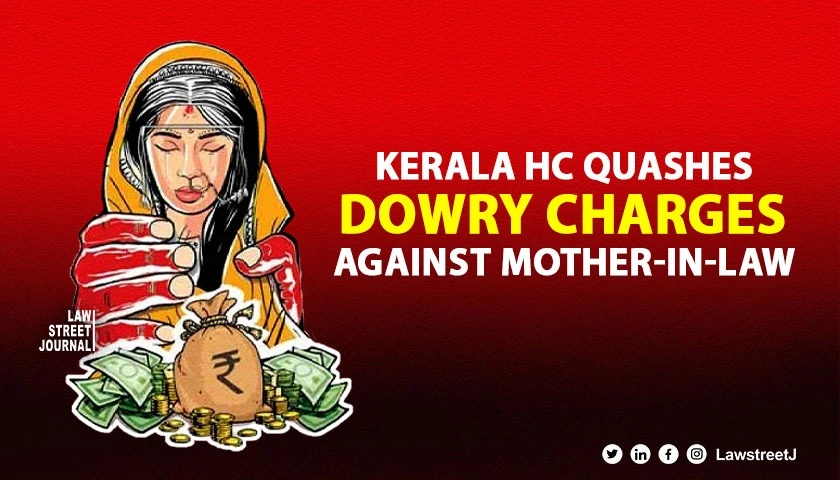Kerala: The Kerala High Court recently held that many women misuse Section 498A of IPC against their husbands and their relatives to defame them in society. "It is noticed that in matrimonial disputes, certain wives initiate criminal proceedings on the strength of vague and omnibus allegations against the parents, sisters, brothers, and other relatives of the husband with ulterior motives to put them under the veil of prosecution involving non-bailable offenses and to make the parents, sisters, brothers, and other relatives of the husband face the ordeal of criminal prosecution and trial, to malign and defame their image in society," the court said.
The court also held that in cases where no specific allegations are made, prima facie, such cases shall be quashed by the High Court by invoking power under Section 482 of the Cr.P.C.
FACTS:
The present Criminal Miscellaneous Case was filed under Section 482 of the Code of Criminal Procedure for quashing criminal proceedings initiated by a woman against her 61-year-old mother-in-law on allegations of committing cruelty and demanding dowry. The main allegation against the petitioner in the FIR was that she was a spectator when her husband was beating and persecuting the complainant and did not interfere. There are also allegations that she abetted the continuous physical and mental cruelty inflicted by her husband on the complainant.
ARGUMENTS:
The counsel for the petitioner argued that she should not be prosecuted under Section 498A of the IPC as the prosecution materials do not suggest any overt acts by her to attract the ingredients of the offense. It was also argued that, as per the FIR, the only allegation against her is that she became a spectator while the complainant was persecuted by her husband and she did not interfere to stop it. Further, the counsel relied on Achin Gupta v. State of Haryana, wherein the Supreme Court held that the courts must appreciate the materials and all quarrels must be weighed from that point of view in determining what constitutes cruelty in each particular case. It was contended that the case against the petitioner was liable to be quashed.
Per contra, the counsel for the de facto complainant and the Public Prosecutor opposed the contentions raised by the petitioners and argued that the FIR itself contained specific allegations against the petitioner. Further, they also pointed to the statements of the complainant's mother and father, which alleged that the petitioner also persecuted the complainant, demanding more dowry. It was argued that these materials were sufficient to proceed to trial against the petitioner.
DECISION:
The court, after hearing both parties, held that only general and sweeping allegations were made against the petitioner without bringing on record any specific instance of cruelty at her instance, which is the substratum on which she got arraigned as an accused. The court observed that the allegations against the petitioner were merely omnibus in nature, stating that she abetted the crime without specifying any overt acts or providing certainty about how she ill-treated or persecuted the complainant. Furthermore, the court noted that the statements of the complainant's mother and father, which accused the petitioner of demanding dowry and mistreating the complainant, were hearsay and not based on direct knowledge or experience of the events.
In conclusion, the court quashed the charges against the petitioner and directed the trial court to expedite the trial against her husband.




![Kerala HC Quashes 498A Dowry Harassment Case Against Live-In Partner, Citing Lack of Relative Status [Read Order]](/secure/uploads/2023/08/lj_5693_1057c042-1e57-4e27-8c9e-25af0ec38ec4.jpg)
![Watching porn on mobile: Kerala HC highlights importance of mother cooked meals, outdoor sports [Read Order]](/secure/uploads/2023/09/lj_9155_Parental_supervision_of_mobile_phone_usage.jpg)
![Lakshadweep MP Mohammed Faizal Disqualified from Lok Sabha After Conviction Suspension Plea Rejected by Kerala High Court [Read Notice]](/secure/uploads/2023/10/lj_9640_87b5fd97-0e05-4ff8-9a99-3be1e4446192.jpg)




